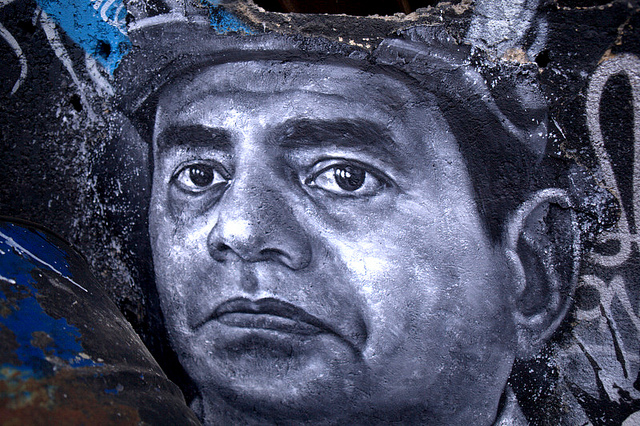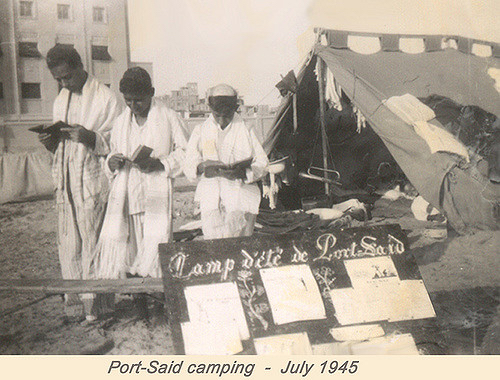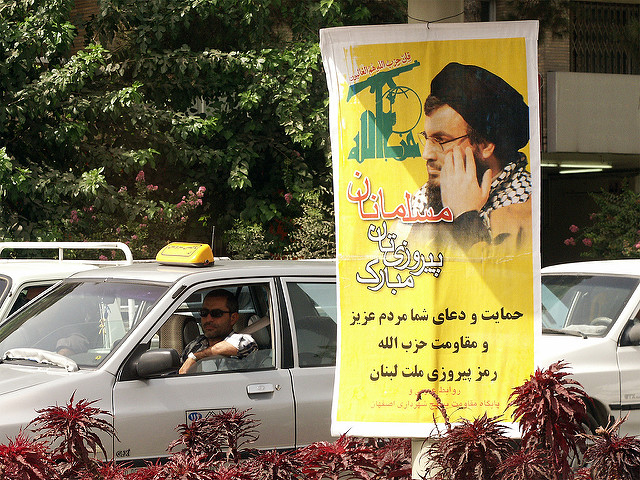Many analysts have become cynical about the Arab spring as a result of events in Egypt. There is certainly cause for it, especially since General al-Sisi is consolidating military rule while establishing a new cult of personality. Personally, I’m not hopeless. There is a trajectory to cults of personality that always has the opportunity to end abruptly, as was the case of Nicolae Ceaușescu in Romania.
There is a great deal of propaganda, on the streets of Cairo especially, that glorify Sisi as the Egyptian military’s new public face. I am not the only one that has been taken aback by posters that show him alongside previous strongmen like Nasser and Sadat. The leading image for this post, which attempts to highlight a rugged masculinity, is just one example of a larger trend, that includes fawning newspaper articles, and adoring protesters. There are many Egyptians, liberals in particular, who are currently saying that “Egypt needs a Pharoah.”
The question is how long that will actually last. There is certainly a cult of Sisi, but it is less cause for cynicism than it is an inevitable result of the post-revolutionary era. Emerging from strongman rule is very difficult. Grassroots struggles are beginning to occur against the felool (“remnants” of Mubarak’s regime) but even beyond the structural, there are serious philosophical issues for those who have survived Mubarak that need to be resolved. Regimes like Mubarak’s are similar to Ceaușescu’s in that the imposing nature of the state, and the charismatic authority that a dictator enjoys in it, has a devestating effect on individual agency, and how they conceive of its scope. Many people forget how to conceive of their freedom altogether, as they become accustomed to the invisible violence of authoritarianism.

As a result, the sudden opportunity to reevaluate that reality (through a period of social change) can be extremely frightening. The temptation to ache for a return to older forms of autocracy is very real, especially since they hold the promise of “resuming business as usual.” It is driven by an intense fear of what we are often told is a childhood fantasy: potential existence without domination, that creates a desire for some form of authority. Does Egypt really need a Pharoah? Or have we forgotten how Egypt can exist without one? Do we actually fear the prospect of a free Egypt, simply because the notion of freedom itself is unfamiliar to us?
These are difficult psychological questions as well as philosophical ones. The basic point is that yearning for military rule involves complicated thought processes that are themselves shaped by authoritarianism. Critically, this does not mean that authoritarianism is permanent. Rather, it means that the process of understanding freedom, and not being scared at the prospect of it, is as important as organized resistance itself. It can be philosophically easier to fall back into authoritarianism, after decades of experiencing it, but that is only in cases where the alternative is poorly understood. Perhaps this is part of the reason that so many revolutions fail the first time around, whether Egypt during the Arab spring, or France during the 1848 revolts.
Another problem is that authoritarianism frequently appeals to non-rational parts of the human psyche. Maybe someone actually does understand the concept of freedom, and what they can build with it, but feels drawn to Sisi for other reasons. The above photo of him with a lion allows the viewer to empty their feelings of impotence and weakness into a caricature of strength and virility. Sisi is a lion because many Egyptians want to be lions, and are settling for a projection that medicates their own feelings of despair. This almost religious adoration is the real underpinning of Sisi’s charismatic authority, which mobilizes both idealized projection, and passionate denial, in the service of a reactionary project. Hence the idea that he personally “freed” Egypt from the Brotherhood.
The game doesn’t last forever. All the rigidity of the cult of Ceaușescu, with its complicated use of projection and denial, couldn’t save Romania from the only violent revolution in the former Soviet bloc. This is because charismatic authority is based in carnal aspects of the human condition, and that kind of irrational affection can flip on a moments notice. Analysts frequently cite opinion polls that show much Egyptians currently love Sisi, but we should be very skeptical about the intense love they feel for the state. It risks mistaking Sisi’s rule as secure, when it is actually quite vulnerable. The more irrationally supporters love Sisi, the more they are secretly aware that something is wrong, and the dear leader isn’t so dear. Much of the excitement has already faded according to PewResearch, with Sisi commanding a slim majority of Egyptian public approval, rather than the clear mandate that followed the June uprising. There is still much to evaluate, and we cannot be sure about what happens next, but if history is any indication, we will be placing Sisi’s propaganda in archives next to Ceaușescu’s sooner rather than later.
Photographs courtesy of thierry ehrmann, and Facebook. Published with a Creative Commons License.





